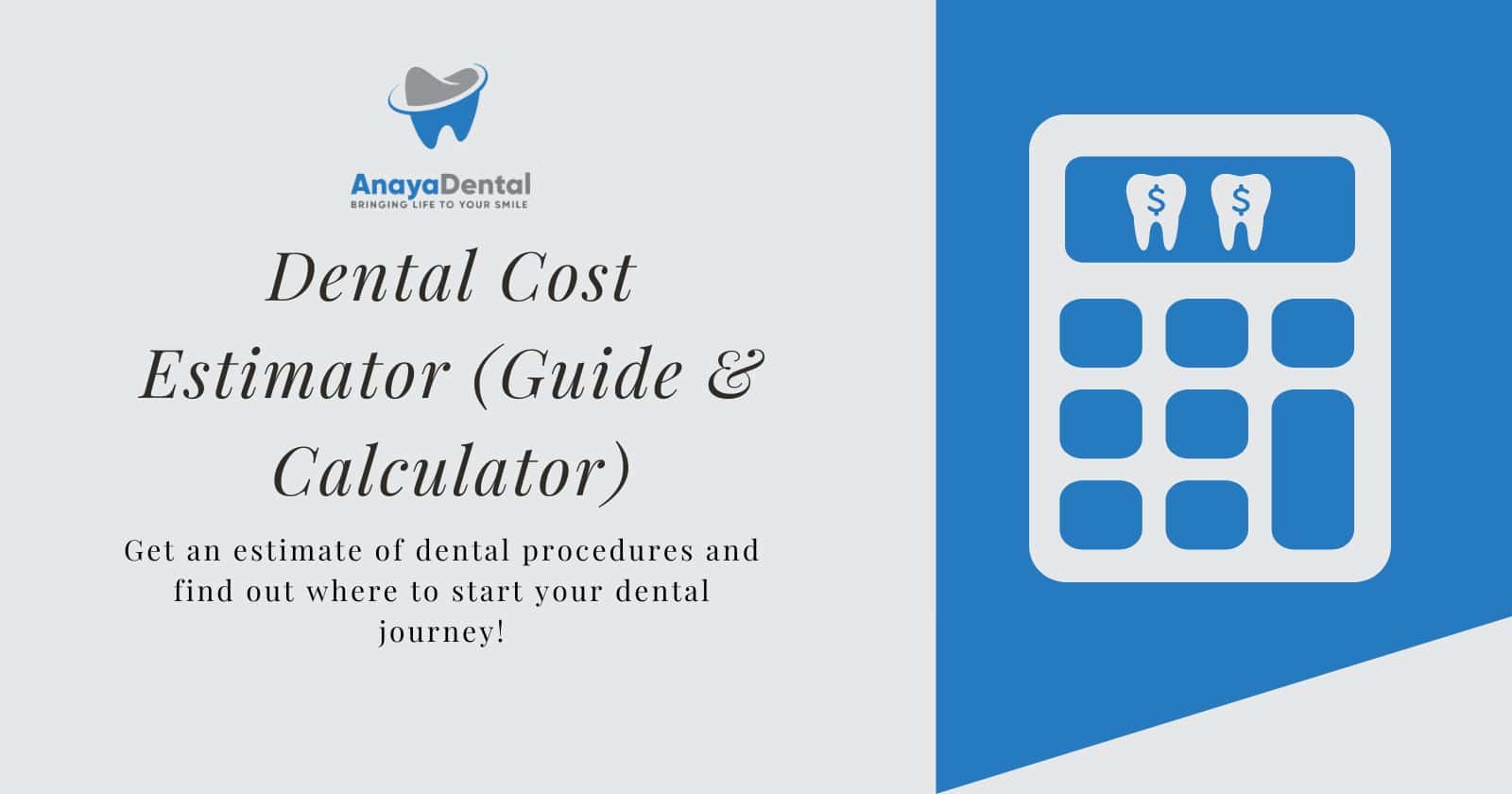Dental Cost Calculator
Patient Information
Preventive Care
Restorative Procedures
Root Canal & Extractions
Implants
Orthodontics
Cosmetic Dentistry
Additional Factors
Estimated Costs
Dental Cost Estimator: Your Guide to Budgeting for Dental Care
Are you confused about how much your next dental visit will cost? A dental cost estimator can help you understand your expenses and plan accordingly. This guide will explain how these tools work, factors affecting dental costs, and how to use them to make informed financial decisions. Understanding and managing dental expenses can prevent financial stress and allow you to receive necessary treatments without unexpected bills.
What is a Dental Cost Estimator?
A dental cost estimator is an online tool designed to provide cost predictions for various dental procedures based on factors like location, type of procedure, and insurance coverage. It helps patients better budget for dental care, covering services such as:
Try Our Dental Calculators
- Routine check-ups and cleanings
- Fillings and extractions
- Orthodontic treatments
- Root canals and crowns
- Emergency dental care
- Dental implants and bridges
- Periodontal treatments (gum disease care)
These estimators factor in procedure duration, material costs, and updated fee schedules, ensuring accurate estimates. While general estimates are available, personalized estimates that incorporate specific patient details provide the most precision. Some estimators may also include cost comparisons between different providers to help patients choose the most affordable option.
Why Use a Dental Cost Estimator?
Using a dental cost estimator offers several benefits, including:
- Accurate Budgeting: Know what to expect financially before scheduling an appointment.
- Insurance Insight: Get a clearer understanding of what your dental insurance covers.
- Comparison of Providers: Compare costs between different dentists, especially when choosing between in-network and out-of-network providers.
- Avoiding Surprises: Eliminate unexpected costs with an upfront estimate.
- Emergency Preparedness: Be financially prepared for urgent dental needs.
- Long-Term Planning: Estimate future dental expenses and plan accordingly.
Accessing Dental Cost Estimators
There are several ways to access a dental cost estimator:
- Insurance Providers: Many dental insurance companies provide online cost estimator tools for their members.
- Dental Clinics: Some dental offices have cost estimators on their websites to help patients understand pricing before their visit.
- Third-Party Websites: Independent sites offer dental cost calculators, allowing users to get estimates regardless of their insurance provider.
- Mobile Apps: Many healthcare and insurance companies offer cost estimation tools in mobile apps for convenience.
How to Use a Dental Cost Estimator
To get the most accurate estimate, users must input details such as:
- ZIP Code: Costs can vary based on location.
- Procedure Code (CPT Code): Specific codes help in determining the exact cost of the procedure.
- Dental Office Details: Entering the name of a specific dentist or clinic may improve accuracy.
- Additional Treatment Details: Some estimators may ask for details like the affected tooth, preferred filling material, or sedation options.
- Insurance Details: If applicable, entering your insurance information provides a more accurate out-of-pocket estimate.
After submitting the required information, the estimator will provide a cost breakdown, including expected insurance contributions and out-of-pocket expenses.
Understanding In-Network vs. Out-of-Network Costs
One of the biggest factors affecting dental costs is whether you visit an in-network or out-of-network provider.
In-Network Benefits:
- Lower out-of-pocket costs
- Insurance covers a higher percentage of services
- Fixed negotiated rates with insurers
- Streamlined claims processing
Out-of-Network Costs:
- Higher out-of-pocket expenses
- Insurance may cover only a small portion, or none at all
- Additional fees that are not covered by insurance
- Potential need for reimbursement paperwork
For cost efficiency, staying in-network is the best option. However, if your preferred dentist is out-of-network, a dental cost estimator can help you understand the additional expenses you may incur.
Estimating Costs for Common Dental Procedures
Let’s explore the estimated costs for routine and specialized dental treatments:
Routine Check-Ups & Cleanings
- Basic dental check-ups and cleanings: $90 – $200
- New patient exams with x-rays: $200 – $400
- Panoramic dental x-rays: $100 – $150
- Fluoride treatments: $30 – $50
Basic Procedures
- Fillings: $150 – $1,100 (varies by material and severity of decay)
- Tooth Extractions: $300 (simple extraction) to $3,000 (surgical wisdom tooth removal)
- Deep cleanings (scaling & root planing): $200 – $400 per quadrant
Major Dental Work
- Root Canal: $900 – $1,500
- Dental Crown: $850 – $1,900
- Braces/Invisalign: Costs vary, often exceeding $4,000, depending on the treatment plan
- Dental Implants: $3,000 – $6,000 per tooth
- Dentures (Full Set): $1,500 – $3,500
By using a dental cost estimator, patients can budget for both expected and unexpected procedures.
Maximizing Dental Benefits with Accurate Estimates
Accurate cost estimates allow patients to maximize their dental benefits by:
- Tracking insurance deductibles and out-of-pocket maximums
- Aligning treatments with their coverage limits
- Exploring alternative options like dental savings plans for additional discounts
- Utilizing pre-tax dollars through HSAs and FSAs
- Negotiating payment plans with dental offices
For those without insurance, payment plans and financing options can make expensive procedures more affordable.
Handling Emergency & Unexpected Dental Costs
Unexpected dental issues can arise, requiring immediate attention and additional financial planning. Common dental emergencies include:
- Dental abscesses
- Broken teeth
- Lost fillings or crowns
- Severe toothaches requiring urgent care
Emergency procedures often cost more due to urgent care fees. A dental cost estimator helps patients understand potential expenses ahead of time, reducing financial stress.
Final Thoughts
A dental cost estimator is a powerful tool for anyone looking to manage their dental care expenses efficiently. Whether you have insurance or are paying out-of-pocket, these tools provide clarity and financial control. By understanding the costs associated with different procedures, comparing in-network vs. out-of-network costs, and planning for unexpected dental needs, you can make informed decisions about your oral health.
FAQs
1. How much does a root canal and crown cost?
A root canal typically costs around $1,000, while a crown can range from $850 to $1,900, depending on location and provider.
2. How much does a tooth extraction cost?
A simple tooth extraction costs between $75 and $200, but complex extractions (such as wisdom teeth removal) can range from $800 to $4,000.
3. What is a dental cost calculator?
A dental cost calculator is an online tool that estimates the cost of dental treatments based on various factors, helping patients budget for dental care.
4. What’s the difference between in-network and out-of-network dentists?
In-network dentists have agreements with insurance companies, leading to lower out-of-pocket costs. Out-of-network providers may have higher fees and limited insurance coverage.
By leveraging a dental cost estimator, you can take control of your dental expenses and ensure that you receive the care you need—without financial surprises!



